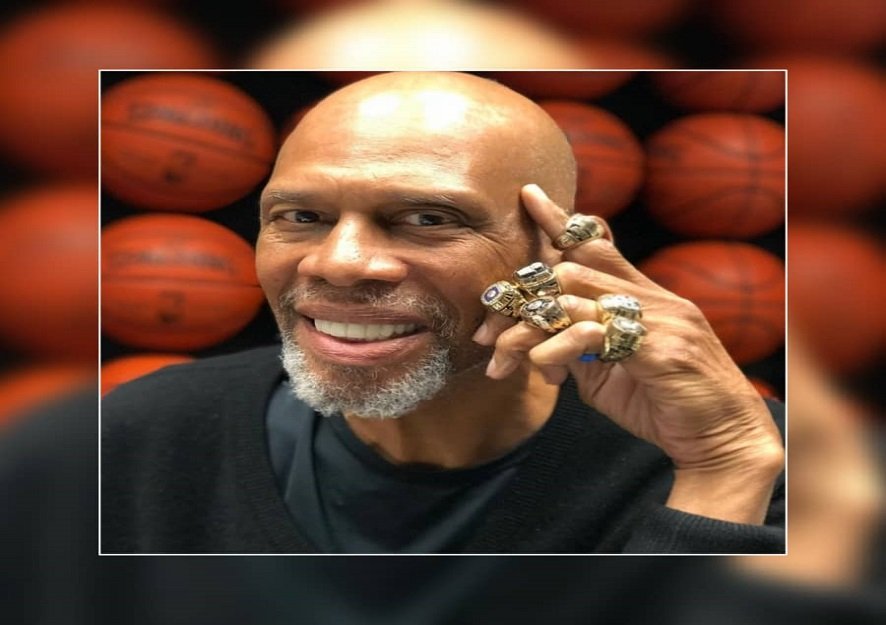Kareem Abdul-Jabbar, born Ferdinand Lewis Alcindor Jr., says he converted to Islam to manifest his African history, culture and beliefs. Already a star man at the University of California, Los Angeles (UCLA), Abdul-Jabbar got embraced Islam as a freshman.
He was able to shun the attempt of being made the poster boy of the American dream, that irrespective of race, religion or economic status, one could be prosperous. He showed a great resentment towards the argument that racism was a myth based on his good life.
However, Abdul-Jabbar would not be deceived. In a letter of why he became a Muslim, he wrote; “I knew better. Being 7-foot-2 and athletic got me there, not a level playing field of equal opportunity. But I was also fighting a strict upbringing of trying to please those in authority. My father was a cop with a set of rules, I attended a Catholic school with priests and nuns with more rules, and I played basketball for coaches who had even more rules. Rebellion was not an option.”
Born on April 16, 1947, and growing up in the 1960s, Abdul-Jabbar, a tower of a man, says he didn’t know many black role models.
He observed: “The white public’s consensus seemed to be that blacks weren’t much good. They were either needy downtrodden folks who required white people’s help to get the rights they were due or radical troublemakers wanting to take away white homes and jobs and daughters. The “good ones” were happy entertainers, either in show business or sports, who were expected to show gratitude for their good fortune. I knew this reality was somehow wrong — that something had to change. I just didn’t know what it meant for me.”
While he admired Martin Luther King Jr. for his selfless courage, his early awakening came from reading “The Autobiography of Malcolm X” as a freshman.
“I was riveted by Malcolm’s story of how he came to realize that he was the victim of institutional racism that had imprisoned him long before he landed in an actual prison. That’s exactly how I felt: imprisoned by an image of who I was supposed to be,” Abdul-Jabbar recounts.
It did not take long for him to ditch the Baptist religion and dedicate himself to the study of Islam. As he saw it, Christianity was a foundation of the white culture responsible for enslaving blacks, and supporting the racism that permeated society.
There was retaliation when his family was attacked by the Ku Klux Klan, and his home burnt by the KKK splinter group the, Black Legion.

The basketball legend opined that Islam aided him to find his true self, and gave him the strength not only to face hostility from both blacks and whites, but also to fight for social justice.
In 1971, aged 24, Lew Alcindor converted to Islam and became Kareem Abdul-Jabbar meaning “the noble one, servant of the Almighty.”
Sequel to his conversion, some fans frowned at his conversion, and attributed the act to that of a betrayal. His parents were not also pleased. “Conversion is a risky business because it can result in losing family, friends and community support,” he noted.
According to the father of five, “Alcindor was a French planter in the West Indies who owned my ancestors. My forebears were Yoruba people, from present day Nigeria. Keeping the name of my family’s slave master seemed somehow to dishonor them. His name felt like a branded scar of shame.”
Abdul-Jabbar’s devotion to Islam meant he agreed to marry a woman suggested to him by Hammas Abdul-Khaalis, who had introduced him to Islam despite his strong feelings for another woman.
In 1973, he traveled to Libya and Saudi Arabia to learn enough Arabic to study the Quran on his own, emerging from the pilgrimage with clarified beliefs and renewed faith. His relationship with Abdul-Khaalis was also severed over disagreements with teachings about the Quran.
For fans who still call him Lew, they get ignored. “They don’t understand that their lack of respect for my spiritual choice is insulting. It’s as if they see me as a toy action figure, existing solely to decorate their world as they see fit, rather than as an individual with his own life,” the convert said.
Abdul-Jabbar went on to dominate the game of basketball throughout the 1970s and early ‘80s. Playing for renowned coach John Wooden, he helped lead UCLA to three National Collegiate Athletic Association championships (1967–69), and during his stay at UCLA, the team lost only two games.
Abdul-Jabbar is the NBA’s all-time leading scorer winning six NBA titles, five with the Los Angeles Lakers, over 20 years.
He joined the National Basketball Association (NBA) and Milwaukee Bucks for the 1969–70 season and was named Rookie of the Year. In 1970-71, the Bucks won the NBA championship, and Abdul-Jabbar led the league in scoring as he did in 1971-72.
In 1975, he was drafted to the Los Angeles Lakers, who won the NBA championship in 1980, 1982, 1985, 1987, and 1988. In 1984, he went past Wilt Chamberlain’s career, scoring a total of 31,419 points.
“Abdul-Jabbar retired at the end of the 1988–89 season, having been voted NBA Most Valuable Player a record six times. By the end of his extraordinarily long career, he had set NBA records for most points (38,387), most field goals made (15,837), and most minutes played (57,446),” according to records.
He was elected to the Naismith Memorial Basketball Hall of Fame in 1995, and was named one of the 50 greatest players in NBA history in 1996. In 2016, he was awarded the Presidential Medal of Freedom.

